
The Message
Where Black Pennsylvania’s Fight for Justice Meets Action.
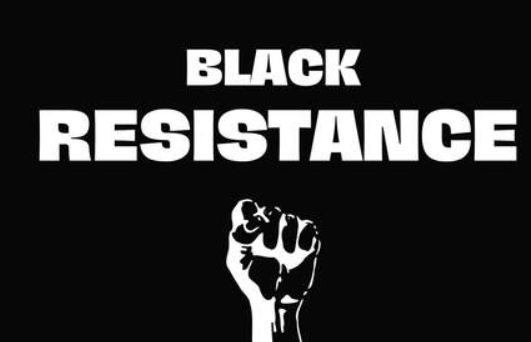
Black History Month Is About Resistance — Not Theater
The City of Lancaster raised a flag today. The county will issue a proclamation later this month.
Today There was speeches. Photos. Logos lined up neatly. A proclamation read aloud. Black organizations invited into City Hall for a moment of visibility. And later this month the county commissioners will invite similar groups to county government building to the same.
It will stop there.
Black History Month did not begin as a celebration.
It was an act of resistance.
In 1926, Carter G. Woodson created Negro History Week as a direct challenge to Jim Crow. Black people were being erased from textbooks, classrooms, and public memory by design. Teaching Black history was not symbolic—it was defiant. It was dangerous. It was a refusal to accept erasure as fate.
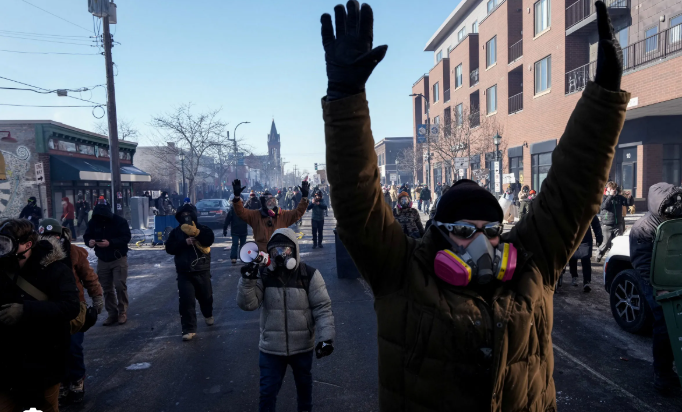
Blood and Power
Let's stop pretending.
The Trump Administration is terrorizing Black and Brown immigrants.
Not immigrants broadly. Not "undocumented people" in the abstract. Black and Brown immigrants.
They are targeting Black people. They are targeting Brown people. They are targeting Latinos. They are targeting Somalis. They are targeting Haitians.
The administration is hunting them, detaining them, and killing them because of who they are.
President Trump sent ICE into Minneapolis to terrorize communities of color. That is the point. The administration concentrates raids, stops, detentions, and armed confrontations where Black and Brown people live. Fear is not an unintended consequence. Fear is the goal.
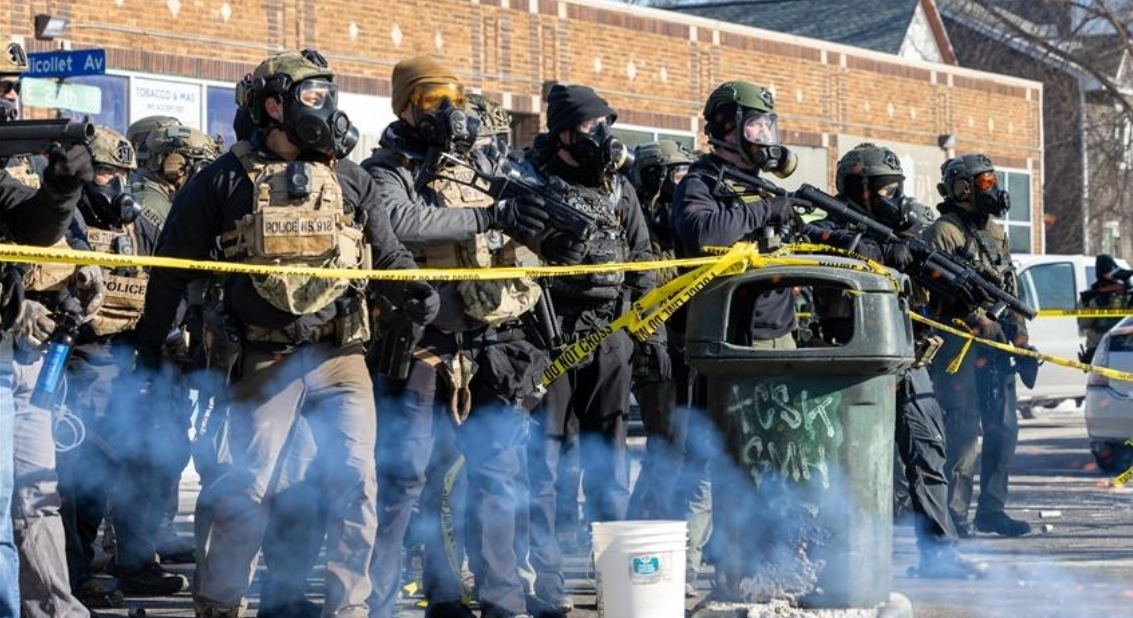
Terror by Design
John Donne wrote,
“Any man’s death diminishes me, because I am involved in mankind; and therefore never send to know for whom the bell tolls; it tolls for thee.”
In Minneapolis this month, that bell has tolled more than once.
Two lives — two people — were taken by federal immigration enforcement.
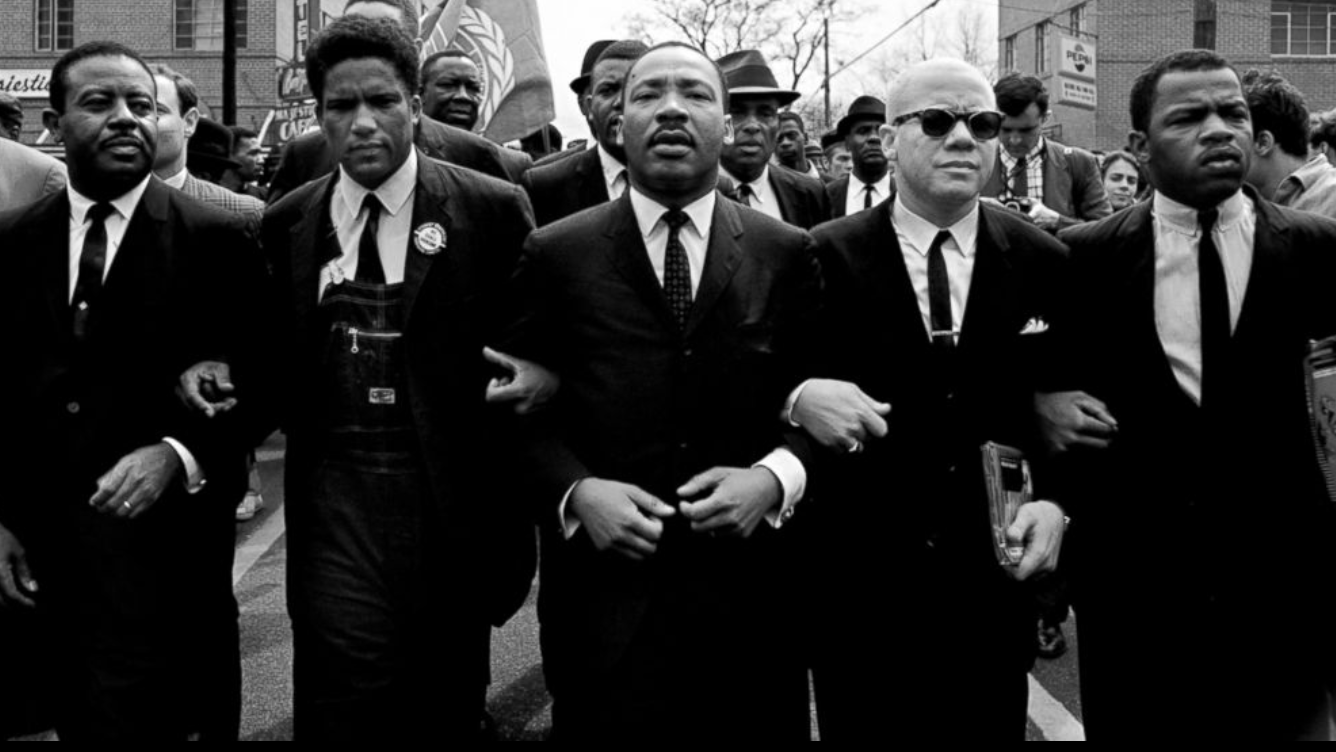
Why I Will Not Celebrate MLK Day in Lancaster
Tomorrow is January 15th.
My birthday.
And the birthday of Martin Luther King Jr, born in 1929.
On Monday, January 19, 2026, Lancaster County will do what it does best when it comes to Black people: pause briefly, pose politely, and move on unchanged.
There will be prayer breakfasts.
Photo ops.
Proclamations.
Committees shaking hands with one another.
Churches reading excerpts.
Nonprofits posting quotes.
And then—nothing.
No feeding the hungry.
No housing the unhoused.
No clothing for the unclothed.
No material changes for Black people who live here every single day.
By Tuesday, the Black community will once again be an afterthought—until February rolls around, and then again until Juneteenth. Ritual recognition without responsibility. Symbolism without sacrifice.
That is why I will not celebrate MLK Day in Lancaster.
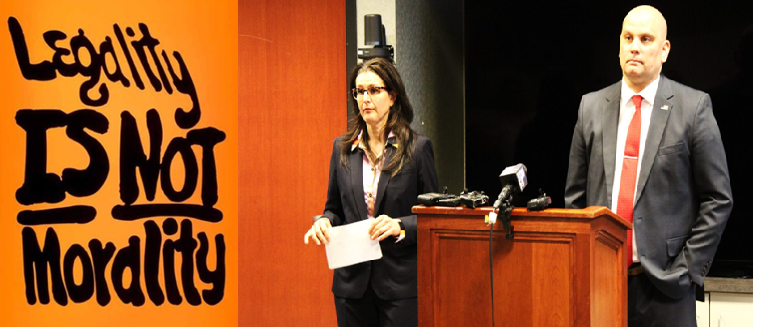
The People’s Brief: The Moral Test of Leadership
Lancaster is facing a simple but defining test: Will our leaders do what’s morally right, now that the court has made clear what is legally permissible?
A Lancaster County judge recently ruled that the city must release police body-camera and dash-camera footage from the March 2, 2025, arrests involving local teenagers. The city’s justification — that it needed to protect the minors’ identities — didn’t hold up. The judge determined that modern technology can blur faces and protect privacy.
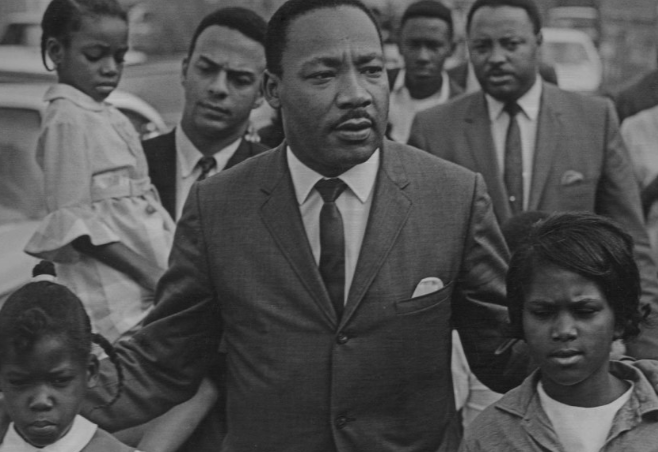
Fixing the Jericho Road: A Call for Moral Action in a Time of Hunger
Right now, as we speak, the federal government is shut down.
SNAP benefits are frozen.
Workers are not being paid.
Families are going hungry.
Across Lancaster County, people are stepping up — churches, nonprofits, and neighbors are organizing food drives and meal programs to make sure no one is left behind. That is good and righteous work. It is what Dr. King would have called the work of the Good Samaritan — stopping along the roadside to help the wounded and hungry when others pass them by.
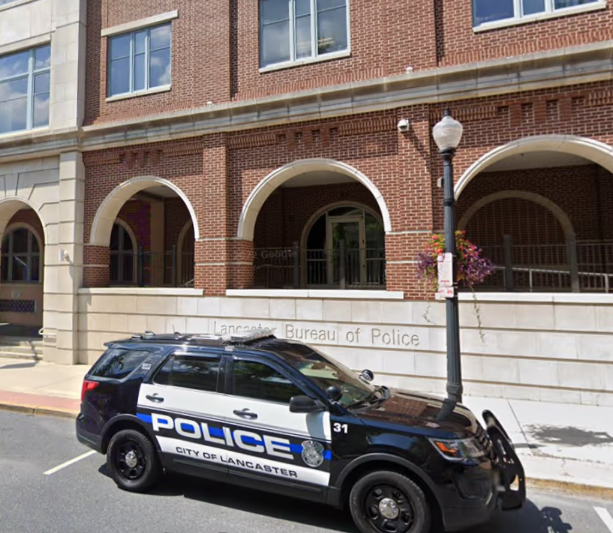
Introducing: “The People’s Brief — Reimagining Public Safety in Lancaster City”
Introducing: “The People’s Brief — Reimagining Public Safety in Lancaster City”
Our last blog post — “How Should Lancaster Choose Its Next Police Chief?” — struck a nerve. Within hours, people were sharing, commenting, and weighing in with thoughtful feedback.
One message came through loud and clear:
Lancaster is ready to have a real, public conversation about policing.
People are saying things like:
“I’m all for modernizing transparency and opening up this process so the city can actually weigh in.”
“It’s smart to get folks to start thinking about this.”
“A call for an open forum is exactly what we need.”

How Should Lancaster Choose Its Next Police Chief?
By the end of this year, Lancaster City will be hiring its fourth police chief in less than five years. Four leaders, four approaches, four promises — and still, the same unease.
Chief Richard Mendez is retiring in December. The city has said it will appoint an interim chief to serve in the meantime, which means the next permanent police chief will likely be chosen by Lancaster’s next mayor after the new administration is sworn in.
That kind of turnover raises a simple but serious question:

Lawmakers in Action – Issue 3 Rep. Summer Lee introduces bill to create Community Safety division in HHS
🏛️ Spotlight: U.S. Rep. Summer Lee (D–PA‑12)
Bill: H.R. 4387 – Division on Community Safety Act
Summary: Proposes a new division within the Department of Health and Human Services (HHS) focused on community safety and public health initiatives.
What’s the issue?
Public health is more than hospitals and clinics—it includes violence prevention, mental health, substance use support, and building safety networks within communities. But there’s no central hub within the federal government coordinating these efforts under one roof.

What John Lewis Would Have Seen at Lancaster’s Candlelight Vigil?
There are no records of John Lewis ever visiting Lancaster, Pennsylvania. He did travel to Philadelphia on two occasions to receive awards: once in 2012 to receive an honorary award from the University of Pennsylvania for social justice advocacy, and in 2016 to receive the Liberty Medal at the National Constitution Center.

Lawmakers in Action – Issue 2 Rep. Izzy Smith-Wade-El Supports Parole Reform for Older Pennsylvanians
This Week’s Spotlight: Rep. Ismail “Izzy” Smith-Wade-El (D – Lancaster County)
Bill: House Bill 908 – Termination of Long-Term Parole Supervision
Summary: A second chance for aging parolees who’ve served time and stayed on track.
What’s the issue?
Thousands of Pennsylvanians remain under parole supervision for years or even decades after they’ve been released from prison. This long-term monitoring can create major obstacles for people trying to rebuild their lives—especially for those who have stayed out of trouble.

No Cause for Celebration: The Fourth of July in a Time of Cruelty
Tomorrow, America will light up the sky with fireworks. Families will gather. Flags will wave. Politicians will deliver patriotic speeches. But for many of us—Black, Brown, poor, working-class—this year’s Fourth of July carries no joy. There is no cause for celebration.
At a time when our country should be striving to lift its people up, Congress has passed what they proudly call a “big, beautiful bill.” But its beauty lies only in the eyes of the privileged. For the millions who rely on Medicare and SNAP, it’s a betrayal. This bill slashes support for the most vulnerable Americans. It punishes the poor. It prioritizes austerity over humanity. And it reminds us, once again, that the system is not broken—it’s working exactly as it was designed to.
Make no mistake: this is the GOP’s vision for America. This bill is a direct assault by Republican lawmakers—backed by the Trump administration and its allies—on working people, the elderly, and the poor. They want to shred the safety net and sell our suffering as 'tough love.' But it is nothing more than calculated cruelty.

61 Years Later : The Struggle for Civil Rights is Ours
Sixty-one years ago today, President Lyndon B. Johnson signed the Civil Rights Act of 1964 into law. This landmark legislation was the culmination of a long and arduous struggle, marked by immense sacrifice and even the loss of lives, including those of Medgar Evers, Harry T. Moore, and three civil rights workers in Mississippi.
The path to the Civil Rights Act was paved with years of protests, beatings, arrests, and heartbreak. Brave individuals put their bodies on the line, confronting police dogs and fire hoses, with some paying the ultimate price. President Kennedy championed this legislation before his assassination, and President Johnson honorably carried it forward as a tribute to his memory.

Why the 2025 Lancaster City Democratic Primary Was Important
The 2025 Democratic Primary stands as one of Lancaster City's most consequential elections in recent memory. In a city that is 56% Democratic and only 20% Republican, the Democratic primary effectively determines who governs Lancaster. Three critical factors made this election particularly significant for the city's political future:
An open mayoral race. For the first time since 2021, Lancaster City voters faced a mayoral election without an incumbent seeking re-election. This created unprecedented opportunities for new leadership and fresh perspectives on the city's direction.
A city council majority at stake. The majority of the City Council was up for grabs, with four of the seven seats on the ballot—enough to completely reshape the governing coalition and policy priorities for the next term.
Lancaster City's outsized regional influence A progressive stronghold, Lancaster City plays an outsized role in shaping Democratic politics across predominantly red Lancaster County. The outcomes here often signal broader political trends and coalition strength throughout the region.

Lawmakers in Action – Issue 1 Rep. Nikki Rivera Champions Prescription Access for Seniors with HB923
This Week’s Spotlight: Rep. Nikki Rivera (D – Lancaster County)
Bill: House Bill 923 – PACE/PACENET Social Security COLA Moratorium Extension
Summary: Keeping prescription coverage accessible for thousands of Pennsylvania seniors—despite rising Social Security payments.

Juneteenth, Education, and the Pursuit of Justice in Lancaster
Juneteenth marks the end of slavery in the United States—June 19, 1865—when enslaved people in Galveston, Texas, finally received word of their freedom, more than two years after the Emancipation Proclamation. It is a day of profound significance, rooted in the collective memory of Black resilience, survival, and the ongoing pursuit of justice.

Who Wins If the Election Happened Today? A Data-Driven Look at Lancaster City Council’s 2025 Democratic Primary
This is not an endorsement. It is a projection built from years of tracking Lancaster City elections since they became contested since 2007, analyzing historical turnout patterns, campaign infrastructure, field visibility, and current mobilization efforts.
Projected Winners (If the Race Were Held Today):
In no particular order: Ahmed Ahmed Amos Stoltzfus Marshall Miller Nancy I. Millán
Just outside the top four:
Lochard Calixte and Vincent Derek Smith
Why This Projection?
In every competitive city race since 2017, three wards — the 6th, 9th, and 8th — have consistently accounted for 50% to 60% of the total turnout. These wards are where the most resources, mailers, field efforts, and signs are concentrated. The campaigns with VoteBuilder access, money for mail, and a network to distribute literature tend to dominate. Three wards out of nine in Lancaster, PA, make up half of the voter turnout.

PA Senate Passes SB 9: Lancaster County's Freshman Senator Among Five Democrats Who Voted Yes
On Tuesday, the Pennsylvania State Senate passed Senate Bill 9 — known as the “Save Women’s Sports Act” — by a 32-18 vote. The bill, introduced by Sen. Judy Ward (R-Blair/Fulton/Huntingdon/Juniata/Mifflin), mandates that athletic teams in public schools and higher education institutions be designated as male, female, or coeducational based on biological sex. The legislation specifically bars individuals identified as male at birth from competing on teams designated for women.

Three Weeks to Win: A Candidate’s Final Push Part 1: Get Serious About Turnout
If you're a candidate running in Lancaster County's May 20th municipal primary — you need to know this:
You're not running a persuasion campaign anymore. You're in a turnout sprint.

A Tale of Two Cities: On Bad Bills, Broken Processes, and the Cost of Silence
There’s a bill moving through the Pennsylvania Senate right now — Senate Bill 9 — that proposes banning trans women and girls from participating in women’s sports. Let’s be honest about what this is: it’s not about fairness, safety, or competition. It’s about attacking a minority group that has been relentlessly targeted by right-wing politics for years.
The bill is dead on arrival in Pennsylvania. It will not become law. But the harm was never in whether it passes. The harm is in the performance — the public spectacle of putting trans lives and dignity up for debate, yet again.
This is what the Republican Party does best: waste taxpayer time pushing legislation that says not everyone counts.
Subscribe!
Join our mailing list to get updates on our latest installments from the message!
